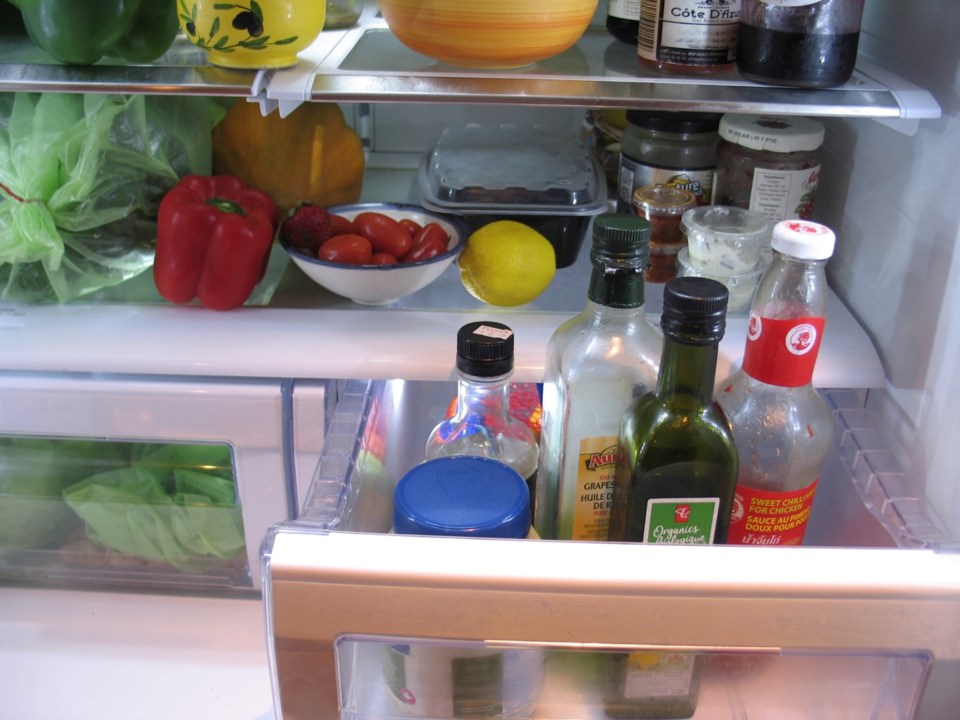It’s easy to have fun with the little proverb, waste not, want not. Or is it waste not, want naught? Then there’s, wasted—not wanted. Or my little spin, above: Waste—Not wanted!, with an exclamation mark to juice up the effect.
Whatever way you spin it, this time-worn expression still rings true, as any good aphorism should. Depending which source you use, it’s been around in one form or another either since the mid-16th century, or the late 1700s, starting life as something a little more alliterative but clumsy, namely, “Wilful waste makes woeful want.”
Woe to us all as we waste! But you have to admit, considering today’s sky-high grocery bills, it feels kind of nuts that, according to the Resort Municipality of Whistler (RMOW), about one third of the average household garbage at Whistler is food!
Think about it… It’s like adding up everything you spend on food in your household in a month, dividing it by three, then going to a bank machine and getting that amount in cash and feeding it to your dog. Kind of a variation on one of the latest pop internet memes where Cecil, the goofy mutt in Pittsburg, eats $4,000 in cash—U.S. cash—which was meant to pay a contractor.
Cut out food waste, and it’s like jacking up your income without even asking for a raise!
Me, in more than one Pique column over the years (try this one from August 2015 for starters); the fearless staffers at muni hall; greenies around the world—for years, tons of us have been urging us all (selves included) to stop wasting food. There’s the sheer squandering uselessness of it all and now, with polar vortexes slipping down south to deep-freeze Canadians while Australians burn up in record heat, it’s a really simple, easy-peasy, common-sense way to cut the greenhouse gas emissions f’ing up our climate.
Just check out the info at whistler.ca/composting, or any reliable source on our climate crisis. Food (and yard) waste generates methane, which is 20 times more potent than carbon dioxide in trapping the sun’s heat around our fair Earth. And it accounts for 6-8 percent of global greenhouse gas emissions.
Then there are all the “Clean up your plate. Your eyes are bigger than your stomach!” exhortations I grew up with from all the moms and dads and grannies and grandpas, the old aunties and uncles and farmers—those good Canadians who drilled it into us it was wasteful on so many levels when we chucked out perfectly good food. Waste of time, of hard labour, of carefully nurtured soil, you name it. I’m always amazed how little food past generations wasted when all they had were iceboxes and root cellars.
But maybe we advocates have all been far too earnest about eliminating food waste, for it’s still happening, most of it in our poor little innocent fridges. Perfectly respectable lettuce wilted into a skanky ball. Moldering takeout leftovers we totally meant to eat. (At least we took them home and didn’t relegate them to the bus bin at the restaurant. Still…).
And it happens on our cupboard shelves, too. The crackers skulking behind the tins, half eaten, the rest gone stale. The Thai sauce that expired in 2019 and you only used once. Maybe you don't have a 55-year-old piece of wedding cake hidden in your freezer, but you know what I'm talkin' about…
SHAKE THINGS UP! HAVE SOME FUN!
Enter Jiaying Zhao. JZ, as she calls herself, is an associate professor of psychology and sustainability at UBC. She’s also definitely fun, pointing out tongue in cheek she’s not Jay-Z, the rapper, in the TED Talk she gave in New York last February that's been making the rounds, for all the right reasons.
JZ and her UBC colleague Elizabeth Dunn have come up with Happy Climate so we don’t all doom and gloom ourselves over reducing emissions.
In this case, JZ’s main headliner is feng shui-ing our fridges by moving all the fresh produce out of the produce drawers and putting it on the door, where we usually keep condiments, or to the front. Either way, it’s in our direct line of vision. I’m not sure that’s exactly applying the principles of feng shui, or that the condiments in the drawer thing will work for you if you’ve got tall bottles of stuff, like we do (see photo above), or you’re trying to stuff that tall celery onto the door. But I get where she’s going.
It’s fun to shake things up! I did it just by rearranging things for the photo above, which, if you look carefully on the left, gives away one little secret we have. Don’t store fruit and veggies, especially leafy perishable ones, in regular plastic bags. That goes double here on the Wet Coast with its high humidity. We've been using Debbie Meyer reusable green bags for years. After I gave some fresh basil in one to an old pal, she was so impressed with how long the tender leaves lasted she got some as a gift for her daughter, she, too, of the skanky lettuce syndrome.
I like what JZ is saying about keeping things in sight. We constantly go through our fridge and apply what any good prairie mom or newspaper uses—the “bring forward” principle.
Got a story idea not ready to be published? You stick it in the “bring forward” file for next issue. Do the same with your perishable stuff—bring it forward. You’ll soon be cutting your waste way back, and having fun stirring things up on your shelves.
I also like another message JZ has for us. Don’t feel bad about cutting down on meat and dairy—the other big greenhouse gas emitters. Just consider them a treat.
In fact, consider any fresh food a treat. We’re so lucky to have it and eat it.
Take care of it.
Glenda Bartosh is an award-winning journalist who’s always hated wasting food.




